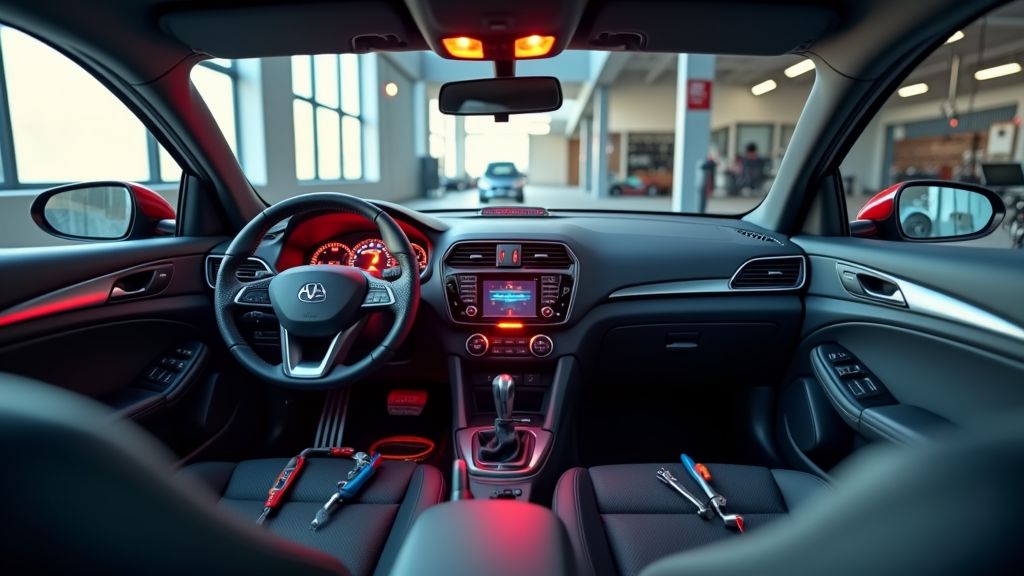Understanding the Impact of Driving Habits on Vehicle Maintenance
Picture this: you’re cruising down the highway, wind in your hair, music blasting, enjoying the open road. But have you ever stopped to think about how your driving habits may be affecting your vehicle’s maintenance? In this article, we’ll delve into the fascinating world of how the way you drive can impact the longevity and performance of your car.
The Basics of Vehicle Maintenance
Before we dive into the nitty-gritty details, let’s start with the basics. Vehicle maintenance is crucial for keeping your car running smoothly and efficiently. From regular oil changes to tire rotations, staying on top of maintenance tasks can prevent costly repairs down the line. But did you know that your driving habits can also play a significant role in the overall health of your vehicle?
Effects of Aggressive Driving
One of the most common driving habits that can impact vehicle maintenance is aggressive driving. Quick acceleration, sudden braking, and speeding can all take a toll on your car’s engine, brakes, and tires. According to a study by the National Institute for Automotive Service Excellence, aggressive driving can decrease fuel efficiency by up to 33% and increase wear and tear on crucial components by as much as 50%.
The Importance of Smooth Driving
On the flip side, adopting smooth driving habits can greatly extend the lifespan of your vehicle. By accelerating gradually, maintaining a consistent speed, and braking gently, you can reduce strain on your engine and brakes. This not only improves fuel efficiency but also minimizes the risk of costly repairs. In fact, a study conducted by the Society of Automotive Engineers found that smooth driving can increase the lifespan of your vehicle by up to 20%.
Tips for Maintaining Your Vehicle
Now that you understand the impact of driving habits on vehicle maintenance, here are some practical tips to help keep your car in top condition:
1. Follow the manufacturer’s recommended maintenance schedule
2. Drive at moderate speeds and avoid rapid acceleration
3. Keep an eye on your tire pressure and tread depth
4. Use high-quality fuel and oil
5. Avoid excessive idling or stop-and-go traffic
By incorporating these habits into your daily driving routine, you can prolong the life of your vehicle and save money on repairs in the long run.
Business Benefits of Proper Vehicle Maintenance
For businesses that rely on a fleet of vehicles, regular maintenance is more than a recommendation—it’s a crucial operational strategy. Well-maintained vehicles perform reliably, reducing the likelihood of unexpected breakdowns that can disrupt service and harm customer satisfaction. Investing in a consistent maintenance schedule also helps businesses avoid costly emergency repairs, leading to more predictable budgeting and improved cost management.
Impact on Insurance and Liability
Maintaining vehicles to a high standard can also positively affect a business’s insurance rates. Insurers often view companies with a strict maintenance regimen as lower risk, which can lead to more favorable premiums. Moreover, regular vehicle upkeep can reduce the risk of accidents caused by mechanical failures, limiting potential liability and safeguarding both employees and assets.
Enhancing Employee Productivity and Morale
A well-maintained fleet doesn’t just impact the bottom line—it also boosts employee productivity and morale. Drivers feel more confident and less stressed when they know they are operating reliable, safe vehicles. Additionally, minimizing downtime for repairs means drivers spend less time waiting and more time delivering on company objectives. This efficiency benefits overall productivity and reflects positively on company culture.
Sustainability and Brand Image
Commitment to vehicle maintenance also aligns with corporate sustainability goals by reducing fuel consumption and emissions. Efficiently running vehicles contribute to a cleaner environment, and businesses that emphasize green practices often gain a competitive edge. A strong brand image that highlights sustainability through responsible vehicle maintenance can attract eco-conscious customers and partners, adding long-term value to the business.













